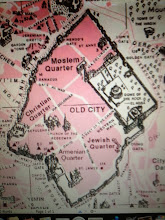Wednesday, December 28, 2011
A Great Lack of Balance
The United Nation’s annual budget is less than five billion dollars annually or it is about the size of Mexico’s military spending or the University of California’s annual budget. With such a large disproportional amount of the global resources going towards military spending instead of peace building humanitarian ways. No wonder we have the conflicts and wars going on today around the world. Especially with many of the oil rich Middle Eastern countries and the State of Israel having the highest percent of their GNP going towards military spending. The United States contributes about 25% of the United Nations current budget. Which works out too less than one percent of the United States annual military budget.
Without a major reevaluation of global and national priorities and spending we will not see global changes for the better. With the United States and her allies spending over a trillion and a half dollars annually on military expenses, comparatively so little on constructive humanitarian aid for the less fortunate. The global economic down-turn leading to the Arab Spring and the protests in the State of Israel over the high cost of living. As the western oil-dry industrial nations struggle to keep their economies a float with massive deficit spending. The United States about 5% of the world’s population is consuming 25% of the world’s oil. The United States imports more oil than Germany, China and India combined while these countries make-up over a third of the global population. With the United States consuming so much of the world’s oil on borrowed money from the rest of the world. These are some of the great imbalances that are creating many of the problems we face on an on going bases.
Labels: balance, Middle East, oil, trade deficit, United States foreign policy
Monday, December 05, 2011
Israel and the Peace Table
When tensions and conflicts are running high between the Israelis and their adversaries. They receive a lot more foreign aid as well as uniting of the international Jewish community behind the State of Israel. Historically durning times of recent peace talks the Palestinians lose more of their ground and the Israeli right wing extremists become more vocal and actively threatening to the Israeli and Palestinian establishment. With the number of illegal Jewish settlers in the West Bank and especially around East Jerusalem more than doubled since the Oslo Accords of 1993.
Over recent years the Israelis have changed the “realities on the ground” on disputed land around the Old City of Jerusalem- East Jerusalem and the West Bank through social engineering. It will only be through social engineering that is more fair and balance that a long term peace solution can be obtained. A clearer vision to how peace would look like and how it is going to work must be outline for more people to understand. The rule of laws must be enforced fairly and be very similar on both sides. What should be right for one side should be right for the other side as well.
Labels: Israeli, Middle East, Palestine, Peace Plan
